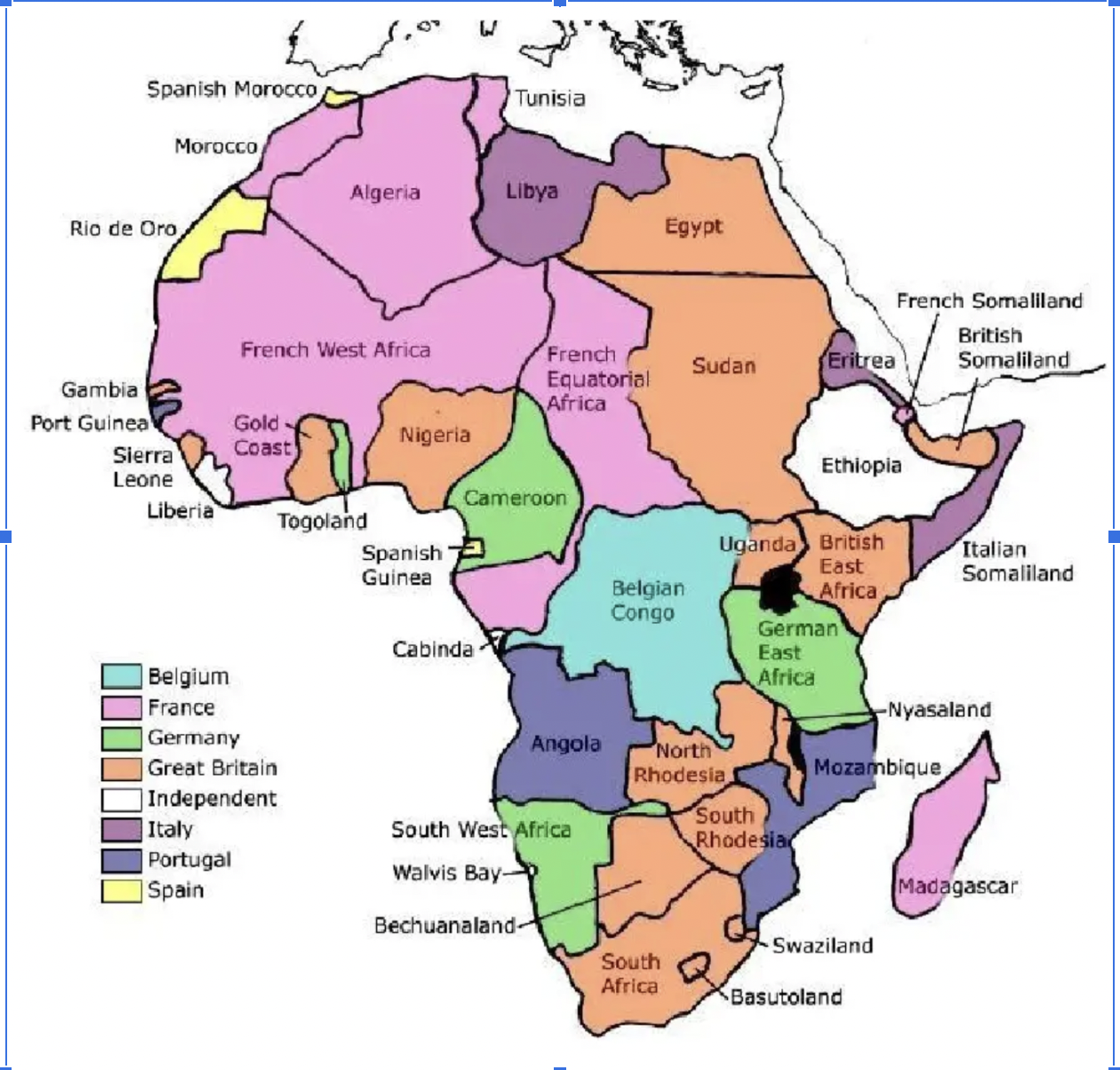European Imperial Expansion and Causes of WWI
1/15
There's no tags or description
Looks like no tags are added yet.
Name | Mastery | Learn | Test | Matching | Spaced | Call with Kai |
|---|
No analytics yet
Send a link to your students to track their progress
16 Terms
Where was Europe expanding? Which continents?
Africa
China
Identify on a map:
British colonies: Kenya, Nigeria, South Africa
German colonies: Tanganyika, Togo, and Namibia
French colonies: Senegal, Algeria, Mali
Portuguese colonies: Angola and Mozambique
Belgium colonies: Congo

What drove Europeans into Africa and other places?
Wealth
Power
Prestige
Ideolgy
“Civilising” justification
Who was Rogar Casement? Why is he one of the modern figures in the development of Human Rights advocacy in the 20th century?
Iriash diplomat, worked for the British Foreign Office (BFO), famous for exposing colonial abuses in Africa and South America.
First diplomat to document human rights abuse
Exposed the colonial exploitation was no progress but brutality
What were the causes of friction among the different European powers?
Imperialism → competition for colonies and resources
Alsca-Lorraine between France and Germany → Rivalries over territories in Europe
Industrial and naval growth → Economic/military competition
Conflicting alliances and treaties
Why Imperialism could have led to WWI?
It created rivalries, distrust, and competition among European powers over colonies and global influence.
Why is Nationalism a cause of political instability?
People with a strong national identity wanted independence (slaves)
Nationalism led to ethnic conflicts (self-rule)
Destabilise multi-ethnic empires (war more likely)
What is self-determination?
The right of a people or nation to decide how they want to be governed and to choose their own political status without outside interference.
What is Weltpolitik: where did the Germans try to expand their dominions?
Weltpolitik was Germany’s plan to become a world power by expanding its colonies in Africa, the Pacific, and China, which increased tensions with other major powers.
What were the alliances being formed in Europe? Why was this dangerous?
Triple Entente: France, Russia, Britain
Triple Alliance: Germany, Austria-Hungary, Italy
Dangerous because a conflict between two countries could drag all allies into war, creating a larger continental war
What is militarism, and why is this a danger to world peace?
Beliefs in building strong armies and navies to solve problems
Danger:
Encourages an arms race
Ready for was (increasing the chance of conflict
Can intimidate neighbours, escalating tensions
According to the refugees interviewed in the Casement Report, what was the main reason they fled their homes?
The rubber tax imposed by government posts
How was the payment for collecting rubber typically handled, as described by the refugees?
Chiefs received cloth and salt, but the laborers received nothing
Which of the following punishments did the refugees report for failing to deliver enough rubber
a.Killings, mutilations, and destruction of villages
b.Fines paid in ivory
c.Exile to another village
d.Beatings with whips only
a.Killings, mutilations, and destruction of villages
What impression did the narrator (Casement) initially have about the refugees’ testimony?
a.He felt the accounts matched European government reports exactly
b.He believed it was truthful without exaggeration
c.He thought it was exaggerated but told with sincerity
d.He was convinced it was entirely fabricated
c.He thought it was exaggerated but told with sincerity
T or F
The refugees testified that the labourers themselves were directly paid in cloth and salt for each basket of rubber they collected.
False